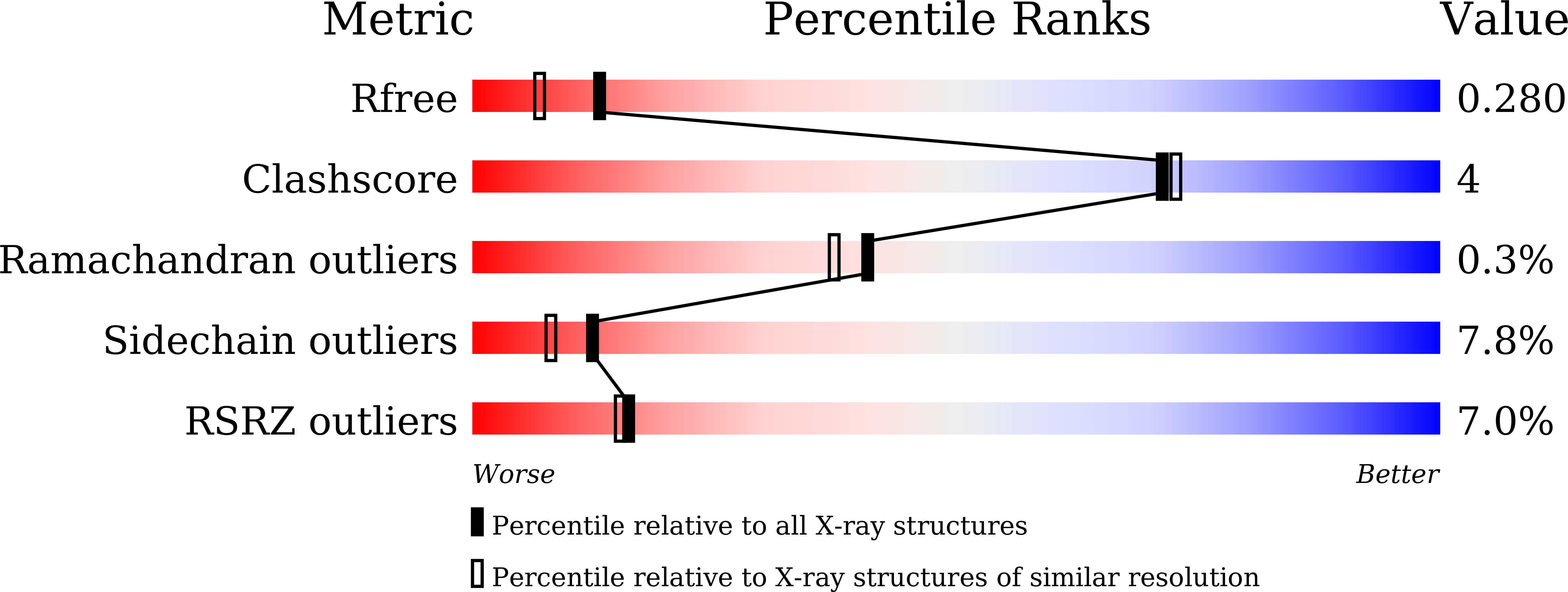
Deposition Date
2020-01-08
Release Date
2020-10-07
Last Version Date
2023-11-29
Entry Detail
PDB ID:
6LP1
Keywords:
Title:
Crystal structure of acetate:succinate CoA transferase (ASCT) from Trypanosoma brucei.
Biological Source:
Source Organism(s):
Trypanosoma brucei (Taxon ID: 5691)
Expression System(s):
Method Details:
Experimental Method:
Resolution:
2.01 Å
R-Value Free:
0.27
R-Value Work:
0.22
R-Value Observed:
0.22
Space Group:
P 21 21 21


